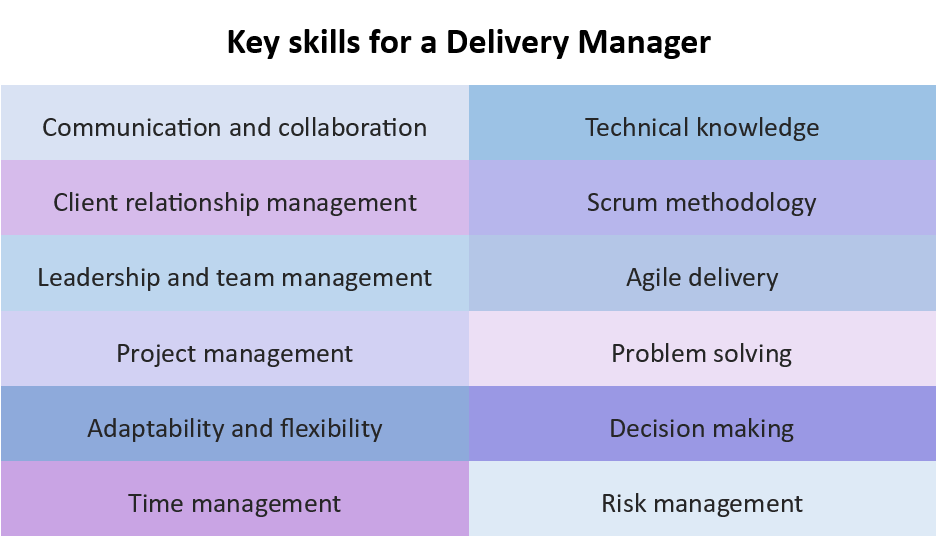From Business Analyst to Delivery Manager: 4 Steps to Success
The author of this article is EPAM Senior Business Analyst Sergey Belousov.

Introduction
In today’s busy world, with so many competing demands on your time, it’s easy to find yourself focusing on day-to-day things without ever realizing your personal priorities. Fortunately, I realized this, and I started to deeply analyse my life, how I spend it, and what I want to achieve. This is crucial for starting the journey to becoming who you capable of being if you unlock your inner potential and strength. With this in mind, you need to be especially careful with your career track. Work is something on which you spend 70% of your waking hours. If you make a wrong decision, it affects your destiny.
I have been working at EPAM as a Senior Business Analyst. The company provides all employees with a variety of career tracks, mentoring opportunities, and support for personal development and education. These opportunities helped me realize that one of the most valuable roles within the tech landscape is a Delivery Manager. A DM is the person who is responsible for the success of the entire project, including (but not limited to) technology, process, people, budget, and — most importantly — the value that the final product will contribute to the world or to a customer. In this role, you will be one of the main creators of the positive changes that tech products offer.
In this article, I explain the career track from Business Analyst to Delivery Manager and share useful tips from my mentors, as well as books that can be helpful for a novice DM.
What is a DM and why is this role challenging?
In recent years, companies received a clear signal from the market that traditional project management is not meeting all of the customers’ needs. The project environment is becoming more complicated, and that has an impact on the allocation of responsibilities within teams. This is where a Delivery Manager comes into play. The DM role should combine project management skills, deep technical knowledge, and other abilities that, collectively, facilitate disruptive results in projects.
DM is a role that requires strong engineering capabilities, managerial best practices, business knowledge, and leadership competencies to ensure the success of your engagement with the clients. It includes organizing, administering, and supervising people, processes, and technologies. When combined into a comprehensive approach, these elements provide the business and technical functions needed to deliver what your client expects to receive. The main goals of a DM include: providing the highest client satisfaction; exceeding clients’ expectations; achieving company profit; supporting business growth; developing experience; and engaging employees.

Now let’s consider some of the roles and responsibilities that a Delivery Manager can fill:
- Project management — to achieve project objectives within all constraints.
- Account management — to support business growth.
- Solution architecture — to ensure a flexible and sustainable solution.
- Product management — to achieve business goals with the suggested solution.
- People management — to lead and inspire people, organize great teams, and provide excellent delivery results.
In summary, a delivery manager is responsible for ensuring the successful delivery of a project and providing the highest level of service. It's important to acknowledge, however, that the other team members working on a given project also contribute to the shared success.
Based on the information provided above, you can see that the DM role might be not for everyone. The level of responsibilities and the necessary skills involved in the role require people who can effectively navigate challenging environments, especially in today's fast-paced world. Mastering the necessary skills can, however, transform you into a valuable, in-demand specialist.
What are the advantages of a DM role?
At this point, you might have a completely reasonable question: if this role is so stressful and challenging, why should I spend so much effort and time to obtain it? The answer depends on the type of person you are. If you are satisfied with being a good BA, developer, or QA engineer, then switching to managerial roles may not be a desired state for you. But if you strive to have more impact, and to change the status quo in a particular industry, city, and even country, then becoming a DM is great choice. You will get the skill set and experience that will open up lots of opportunities to you and will allow you to build enterprise projects.
It's also important to mention that the DM position is well-paid, especially if you truly master all the skill sets — then, your value on the market is very high. Another point is that the DM role offers you the ability to build relationships with top-level people in the industry from whom you can learn a lot. You can be responsible for the success of an entire project and product within a brand you love, or even start your own business.
Conclusion
Delivery management is a challenging job that combines various roles, requiring both hard and soft skills, as well as knowledge in different domains. If you aspire to bring about meaningful and positive changes, however, consider pursuing this career path.
Here are some useful books recommended by tech experts that can help you during your Delivery Manager journey:
- Inspired: How to Create Tech Products Customers Love, by Marty Cagan
- Managing The Professional Service Firm, by David H. Maister
- The Ideal Team Player: How to Recognize and Cultivate The Three Essential Virtues, by Patrick M. Lencioni
- Project to Product: How to Survive and Thrive in the Age of Digital Disruption with the Flow Framework, by Mik Kersten
- The Mythical Man-Month: Essays on Software Engineering, by Frederick Brooks, Jr.
- The Trusted Advisor, by David H. Maister, Robert M. Galford & Charles H. Green
- Accelerate: The Science of Lean Software and DevOps: Building and Scaling High Performing Technology Organizations, by Nicole Forsgren, Jez Humble & Gene Kim
- A Complaint Is a Gift: How to Learn from Critical Feedback and Recover Customer Loyalty, by Janelle Barlow


.png)
